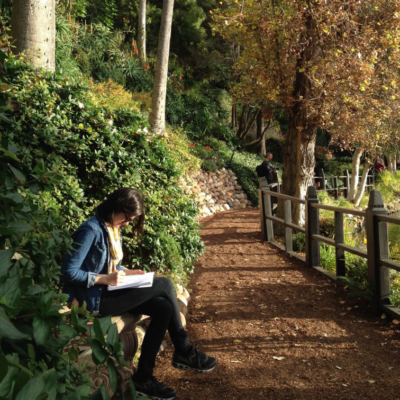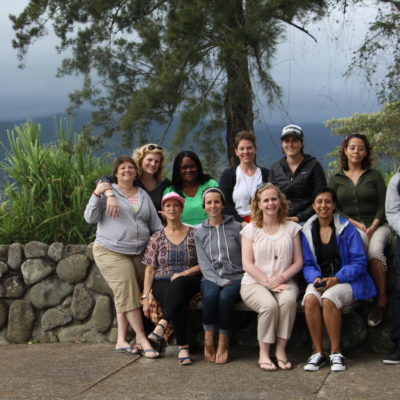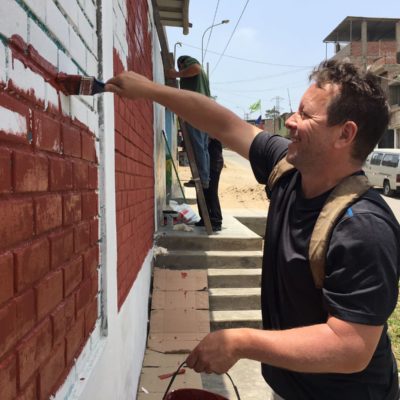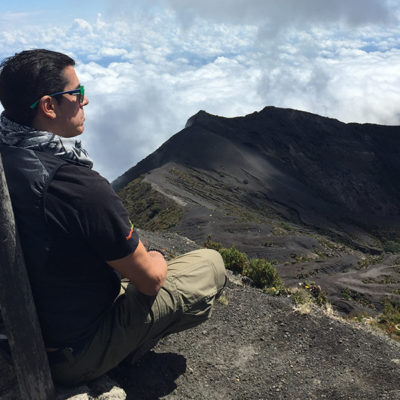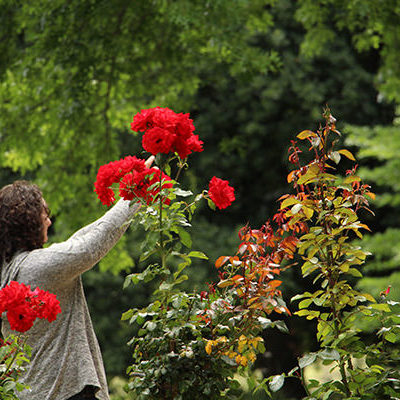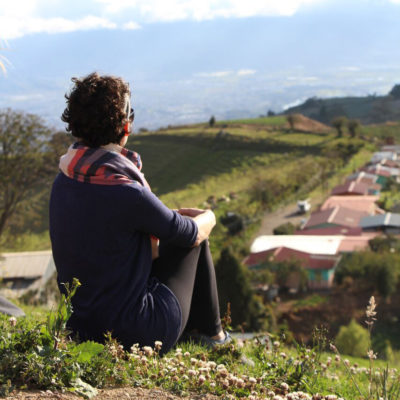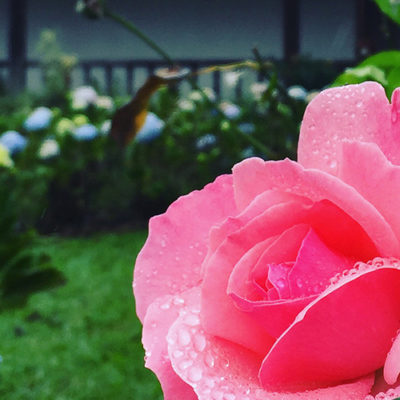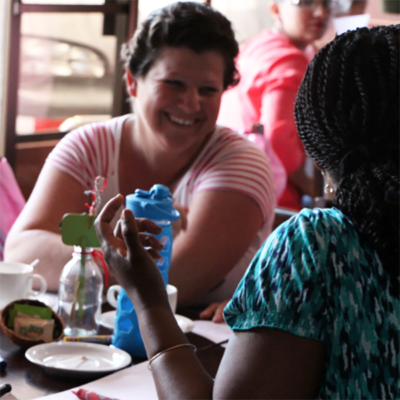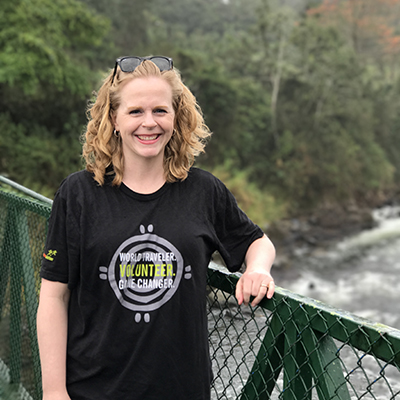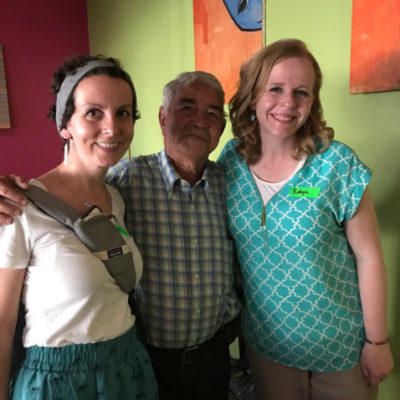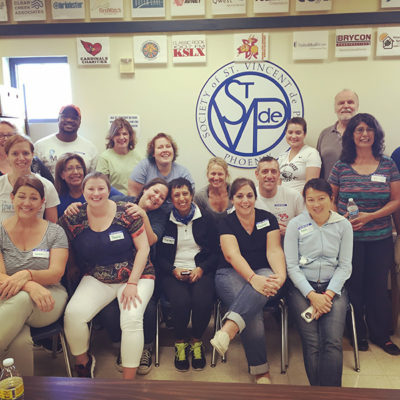
Costa Rica Odyssey: Program
Program
Participants
Our Costa Rica program is open to both caregivers and patient/survivors. The program will have 12-14 participants, women and men who have been impacted by some type of cancer as a patient/survivor or caregiver. Program participants typically range in age from mid-20s through late-60s. We’ve found this diversity creates a more enriched experience for everyone.
Flights
- You will fly in and out of Juan Santamaria Airport in San Jose, Costa Rica.
- You will likely have a layover in the United States or Central America. Give yourself at least 2 hours between flights in order to clear customs & make your way to another terminal.
- You will likely be taking a red-eye flight. Consider the following items to make yourself more comfortable: compression socks; neck pillow; sturdy earplugs like Max (silly putty); eye mask; ear buds/headphones for movies.
- You can fly any airline you like but please confirm with the Cross-Cultural Solutions (CCS) team what arrival time is appropriate on September 15, 2018. Airport transfers will be arranged by our partner CCS to take you from the airport to our home base. You can depart anytime on or after September 29 2018. CCS will arrange airport transfer for anyone departing on September 29. If you plan to stay longer in Costa Rica, you will need to book and pay for your own airport transfer.
- Good airlines to consider: Avianca, Copa, LATAM, United, American, and Delta
- Suggested places to book through: Skyscanner, Hipmunk, SAA, Kayak, Cheapoair
- The typical participant will need approximately $400 to $800 for the round trip flight to Costa Rica.
- Many previous participants have been donated airline miles to help offset flight costs.
Airport Pickup
- Please bring a copy of the CCS Travel Contact Information Sheet (provided by CCS closer to your departure date) in your carry-on luggage. (Pro Tip: Take a photo of it on your phone!) This sheet lists the contact information for our in-country staff and a 24-hour emergency hotline for you to call in case of delays or emergencies.
- You will meet CCS staff in the greeting area outside of customs. They will be holding a sign with the CCS logo.
Passport & Visa
- Citizens of the United States and Canada do not require a Visa to travel to Costa Rica.
- You must have a valid passport and at least (2) two blank visa pages in your passport to enter the country.
- You should also ensure that your passport does not expire within the six (6) months following your return.
Medical
All participants are responsible for informing FCAF/SEE of any physical or medical conditions through the mandatory Medical Form and Addendum. You will receive this form shortly and it must be completed by your oncologist or primary health care provider and submitted back to us by the deadline.
- No malaria or yellow fever medication is required for travel to Costa Rica.
- We recommend checking out the CDC travel page for Costa Rica to see what is advised and making an appointment with a personal physician or travel doctor to see what they recommend for you specifically. The CDC recommends Typhoid and Hepatitis A vaccines for most travelers, although these are not required.
- Please review the CDC’s warning about the Zika virus.
- We will send information to all participants about travel medical insurance coverage (included in your Program Fee) once we have confirmed all details with our insurance partner.
Accommodations
- All program participants will be staying at a basic guest house in the Orosi Valley – not at the typical CCS home base in Cartago. While basic, the retreat center will have everything you need. You can expect to have 1-3 roommates in a room with a shared, en-suite bathroom (each person will have his/her own bed – no bunk beds). Both women and men will be housed in the same retreat center but will not share rooms. We will eat most, but not all, of our meals at the retreat center. While there is Wi-Fi – it is not fantastic – and you may want to consider an international cell phone plan through your carrier at home.
- Most meals will be taken in the retreat center and will consist of traditional Costa Rican food. This includes rice, potatoes, meat, salads as well as a mostly typical western breakfast.
- Food allergies can be accommodated with advance notice (vegetarian, gluten-free, dairy-free, etc.)
- All transportation to and from our volunteer placements and to cultural activities will be provided. Transportation for optional activities and excursions is the participants’ responsibility.
Packing Guide
- September is a great time to visit Costa Rica. The average high is around 80 degrees F, and average low around 63 degrees F. However, they say you can experience all four seasons in one day in Costa Rica, so be sure to dress in layers and bring a rain coat and comfortable shoes that you don’t mind getting wet. It is the rainy season, so pack rain gear!
Clothes:
- Layers! Comfortable, loose, modest, basic – nothing low cut or see-thru, nothing that screams privilege
- For your volunteer placement: t-shirts, long shorts, skirts (knee-length and below), capris, jeans, and long pants/trousers.
- Active wear – clothes you can easily move in and good walking shoes!
- A nicer outfit for our final dinner or our visit to San Jose – although anything goes in Costa Rica and there is no need to dress up
- Closed toed shoes to wear for volunteering and city-exploring
- Some long pants and sweaters for possibly chiller evenings
- Slippers and warm pajamas
- Raincoat
- Hat
Things:
- Journal
- Refillable water bottle
- Sun Screen
- Bug Spray
- Hand sanitizer & travel pack of tissues
- Granola bars or other snacks
- Sunglasses
- Camera
- Personal hygiene items
- Backpack/sling purse to carry water bottle, tissues, and hand sanitizer to work assignment
- Weekend bag (could be your carry-on)
- Luggage lock
- Medications (please make sure they are in their original prescription bottles)
- Copy of passport, kept in a separate location from your actual passport
What NOT to bring:
- Valuables – only bring a laptop if you have a true need
Remember – PACK LIGHT. Laundry facilities are available. In addition, you will have access to all basic necessities when we go to Cartago, including toiletries and any supplies you may want for your placement.
Itinerary
The international volunteer component of the Costa Rica Odyssey program runs from September 15-29, 2018. Selected participants are expected to arrive in San Jose, Costa Rica on Saturday, April 21st (time to be confirmed with CCS staff)and to depart at any time on Saturday, September 29, 2018.
- Saturday – arrival
- Sunday – CCS orientation and sightseeing
- Monday – Friday: morning volunteering and a combination of cultural and A Fresh Chapter activities in the afternoon and evenings
- Saturday-Sunday: weekend trip to the Arenal rainforest/volcano region
- Monday – Friday: morning volunteering and combination of cultural and A Fresh Chapter activities in the afternoon and evenings
- Saturday: departure at any time
While there will be some pockets of free time for rest and reflection, we recommend early or stay later after the program if you want free time for exploration in Costa Rica.
Our activities are designed to address the deeper emotional scars of cancer – the emotions around the shared struggles of cancer. This is not a traditional support group and so there are no organized activities around sharing your specific story of cancer (e.g. on May 5, 2000, I was diagnosed with stage four breast cancer, etc.) Instead, through volunteering, travel and a variety of activities – such as journaling prompts, individual and group exercises, and opportunities to share pieces of your story – our program will help you to uncover the emotional scars of cancer, start to process and deal with them, and begin to guide you toward a new chapter in your life. While our programs do not follow the typical support model, there are some elements that may be familiar to those who have attended support groups.
All A Fresh Chapter activities are required, as is volunteering each morning. There are some cultural activities that can be optional but are recommended in order to have the full experience of the program. Accommodations can be made for those who need more time to rest such as individuals in active treatment or those suffering from post-treatment fatigue.



